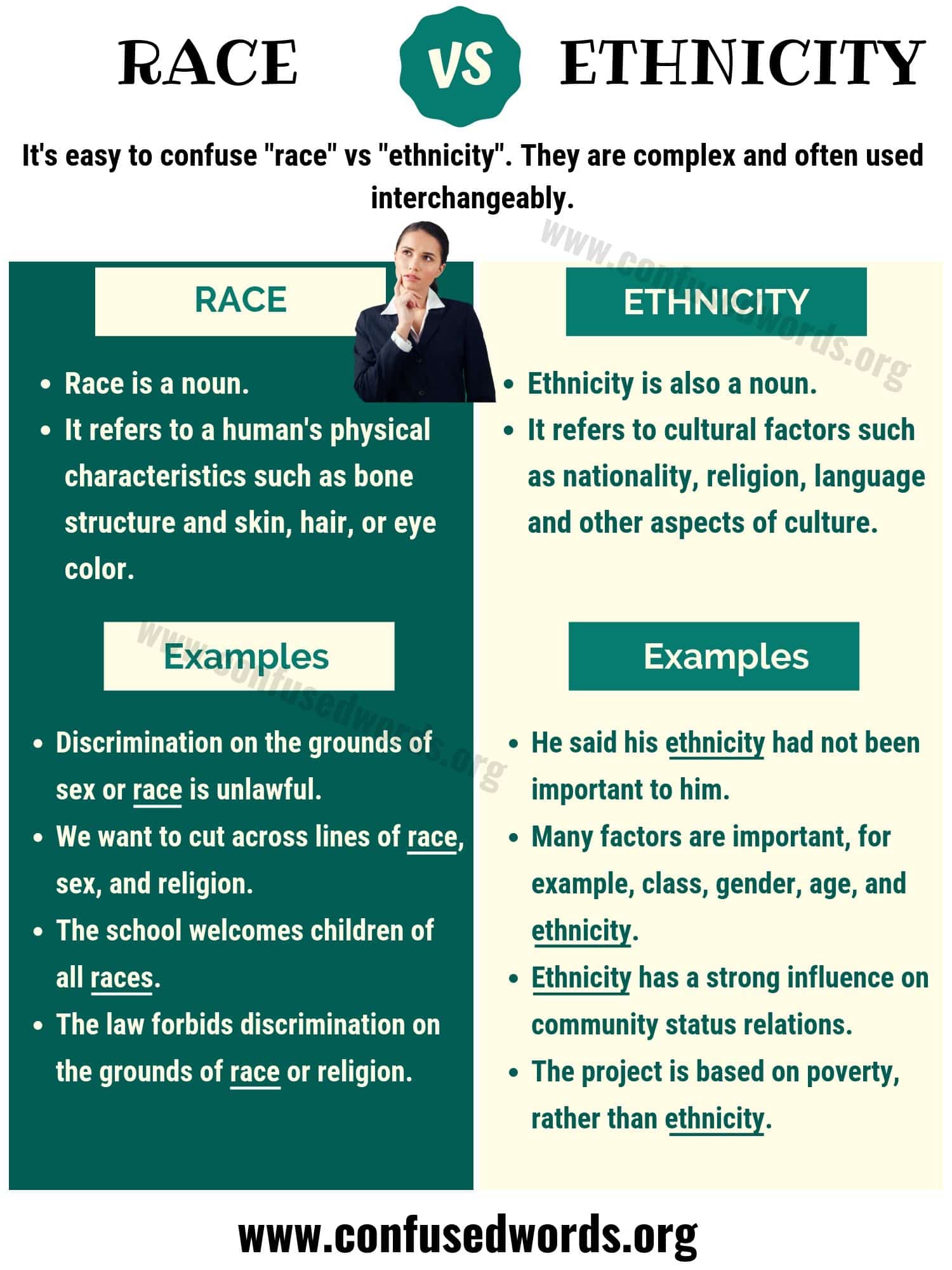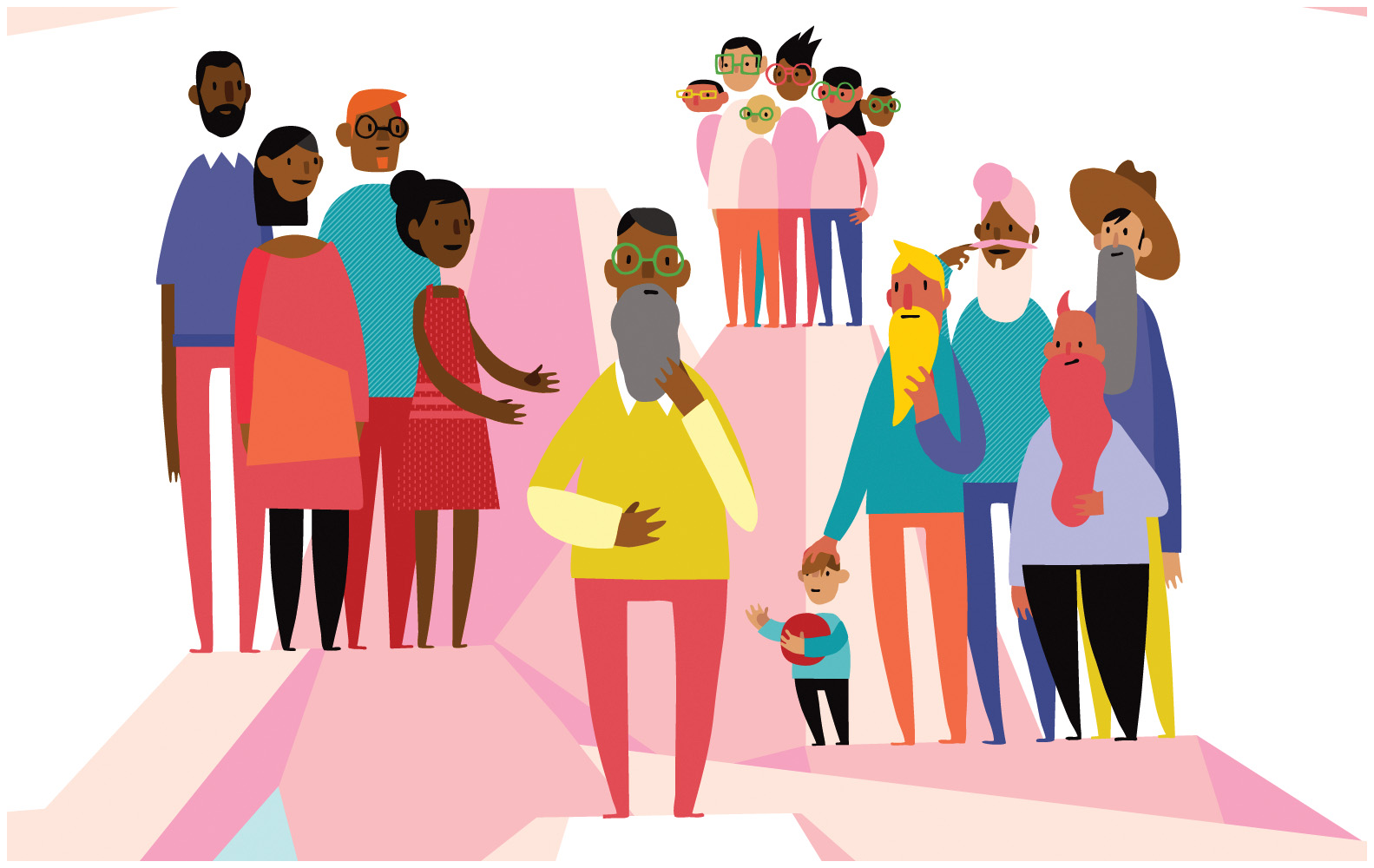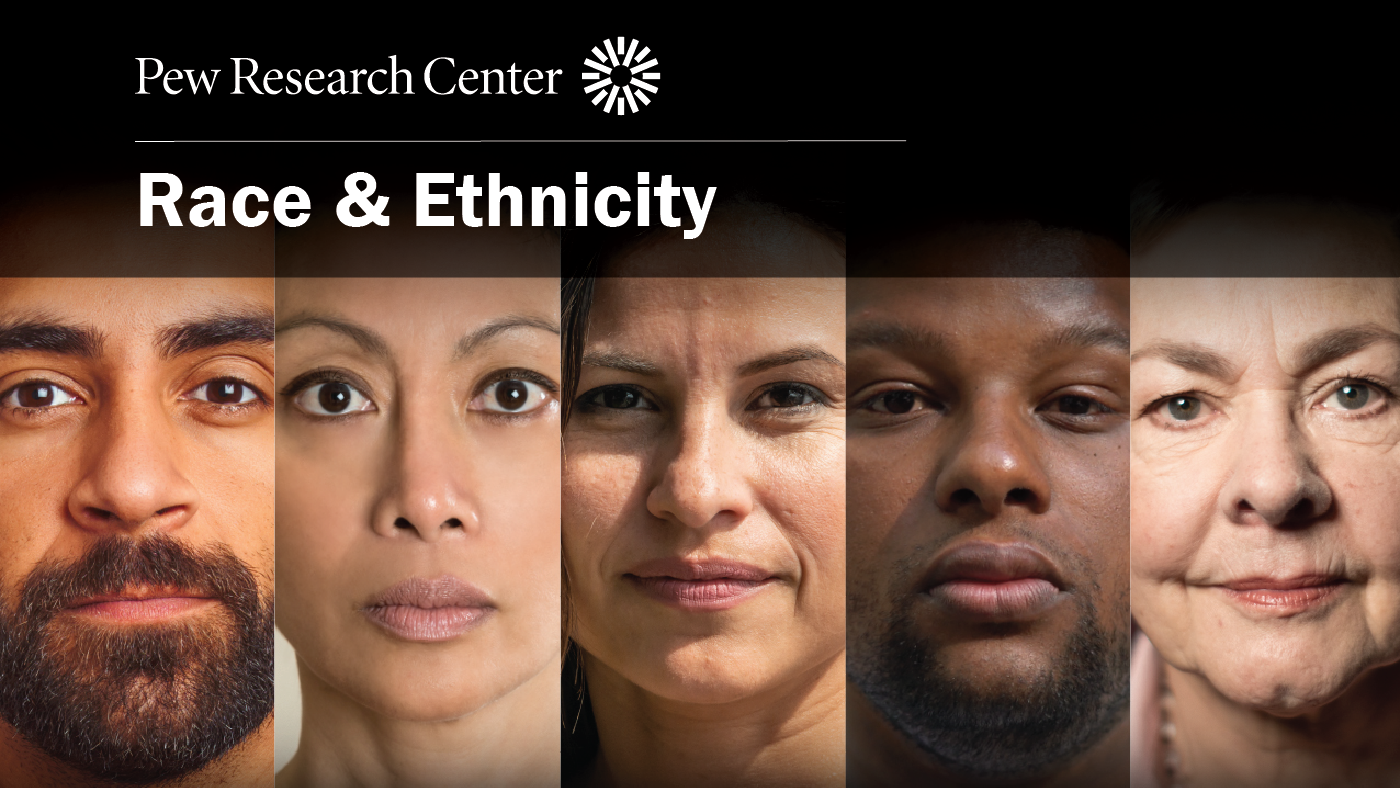Understanding Ethnicity: A Look At Our Shared Human Stories
Have you ever stopped to think about what truly shapes who you are? It's a big question, to be sure. Many things play a part in our personal stories, yet one powerful element often comes up: your ethnicity. This idea is about more than just where you were born. It connects you to a bigger picture, a collective experience that spans generations. It’s a way people find common ground with others, a shared sense of self that feels very real.
So, what exactly is ethnicity? It’s a cultural way of sorting people. This sorting is based on things like the words a group speaks, the customs they keep, and where their culture first began. It's a bit like a large, shared family history, but for a whole group of people. This shared background helps people feel like they belong somewhere special, you know, like they are part of something bigger than themselves.
Knowing about ethnicity helps us see the world in a richer way. It helps us appreciate the many different paths people have walked. It also helps us understand why people do what they do, and how their past shapes their present. This understanding, in a way, brings us closer together, even if we are from different places. It's a pretty important idea to think about, actually.
- Undress Ai Telegram Free
- Wasmo Somali Telegram 2026
- What Do People Do On Onlyfans
- Does Trump Have A College Degree
- Online Telegram
Table of Contents
- What is Ethnicity? Defining a Cultural Connection
- Ethnicity vs. Race: Unpacking the Differences
- The Richness of Shared Identity
- Why Understanding Ethnicity Matters
- Exploring Your Own Ethnic Roots
- Frequently Asked Questions About Ethnicity
What is Ethnicity? Defining a Cultural Connection
When we talk about ethnicity, we are really talking about a group of people who feel connected. They identify with each other because they believe they share certain things. These shared things make them stand apart from other groups. It's a way of saying, "We are like this because of our common background," you know?
My text tells us that ethnicity is a cultural way of classifying people. This classification is based on things like language, traditions, and the cultural beginnings of a group. So, if a group of people speaks the same language, practices similar customs, and can trace their culture back to a common place, they likely share an ethnicity. It’s a very human way of grouping ourselves, really.
It's about more than just where someone lives right now. It is about a shared sense of identity. This identity comes from common cultural ways of doing things, and from what people have gone through together in history. For example, people might share a specific type of music, or a particular way of celebrating holidays. These are all parts of an ethnic identity, you know, these bits of shared life.
- Happy Gilmore 2 Daughters In Movie
- Does Telegram Work In Uae
- British Values Eyfs
- When Did Celine Dion Passed Away
- Is Ella She Married
Basically, an ethnicity is a social group. This group strongly identifies with one another. They do this because of a shared culture and a shared past. It could be a social group that has a common and special culture, or a religion, or a language, or something similar. It is about the things people acquire from their group, rather than what they are born with in a physical sense. It’s pretty interesting, that.
Ethnicity vs. Race: Unpacking the Differences
It's easy to mix up ethnicity and race. Yet, they are actually quite different ideas. My text makes this very clear. Race is often thought of as a biological classification. This means it is based largely on how people look, on their physical features. Ethnicity, on the other hand, is not about biology at all. It is about culture and shared ways of life. That is a big difference, isn't it?
Cultural Versus Physical Traits
Think about it this way: race refers to putting people into groups based on their outward physical appearance. This could mean things like skin color, or the shape of facial features. It is a very surface-level way of looking at people, in a way. Race might also involve some commonalities of culture and history, but the main focus is on the physical. That is usually how people think about it, anyway.
Ethnicity, by contrast, is based on traditions, language, nationality, or cultural heritage. When you consider your ethnicity, you look at these deeper cultural ties. It is not about how you look, but about the group's traditions and shared experiences. So, while race is about dividing people based on how they appear, ethnicity is about people identifying with groups from different places, including their shared culture. It is a much broader concept, you see.
How We Get These Markers
My text explains that ethnicity refers to markers people get from their group. These are not things you are born with in a physical sense. They are learned. They are passed down. They are things like a certain way of speaking, or specific stories from the past. Race, however, is more about physical traits. Things like skin color or facial features are usually considered part of race. So, one is about what you learn and share, and the other is about what you look like. It is a pretty clear distinction, actually.
Ethnicity primarily relates to cultural heritage. This means shared traditions, language, and the history of one's ancestors. Race, in contrast, is more focused on physical traits. These traits include skin color, facial features, and other outward appearances. This distinction is very important for truly understanding human diversity. It helps us see beyond just what is visible. It helps us appreciate the rich inner world of shared culture. It is quite interesting, really, how these two ideas work.
The Richness of Shared Identity
The idea of ethnicity, in a way, speaks to a shared sense of identity. It creates a feeling of belonging among people. These are people who believe they have common ancestors. They also share cultural ways of doing things, and historical experiences. This shared history and these common practices make a group feel like a family, in a bigger sense. It is a very powerful connection, you know.
This identification with a specific group of people is based on one or more shared traits. These traits might include ancestry, or culture. It is about the things that bind people together, not just by blood, but by shared life and shared stories. It is a very human way of finding your place in the world. It is a rather comforting thought, that.
Language and Traditions as Cornerstones
Language is often a big part of an ethnic group's identity. It is how stories are told, how history is passed down, and how daily life is lived. Think about the specific phrases, or even just the sound of a language. These things can connect people deeply to their heritage. Traditions too, are like the glue that holds an ethnic group together. These might be special foods, or unique celebrations, or even particular ways of dressing. These customs are often passed down through families, from older people to younger ones. They keep the culture alive, you see.
For instance, a group might have a special dance that has been done for hundreds of years. Or they might have a unique way of making a certain dish. These are not just random acts. They are parts of a shared cultural heritage. They are things that connect people to their past, and to each other in the present. It is pretty amazing how these things continue through time, isn't it?
Ancestral History and a Sense of Belonging
Ancestral history plays a very big part in ethnicity. It is about the people who came before us, and the paths they walked. Knowing about your ancestors can give you a strong sense of where you come from. It can help you understand why your group might have certain beliefs or practices. This connection to the past gives people a sense of belonging. It helps them feel rooted, like a tree with deep roots. It is a very grounding feeling, that.
This feeling of belonging is very important for people. It gives them a place in the world. It gives them a community. When people share a history, they often share a sense of purpose too. They might work together to keep their traditions alive. They might teach their children the language of their ancestors. All these things strengthen the bonds within an ethnic group. It is a powerful force, really.
Why Understanding Ethnicity Matters
Understanding ethnicity is important for many reasons. For one thing, it helps us appreciate the wide range of human experiences. Every ethnic group has its own unique stories, its own ways of seeing the world. Learning about these differences helps us grow. It helps us be more open to others. It is a good way to build bridges between people, you know.
It also helps us understand ourselves better. When you learn about your own ethnicity, you often discover things about your family, your community, and even your own personality. It can explain why certain things feel right to you, or why you have certain values. It is a bit like finding missing pieces of a puzzle. It is very personal, that.
In a bigger sense, understanding ethnicity helps create a more fair world. When we know about and respect different ethnic backgrounds, we can work to make sure everyone feels seen and valued. It helps us avoid misunderstandings. It helps us celebrate the many different ways people live and thrive. This makes our communities stronger, and our world a richer place for everyone. It is very important, actually, this understanding.
Think about how different cultures contribute to art, or food, or music around the world. These contributions often come from specific ethnic traditions. When we understand the source of these things, we can appreciate them even more. It is a way of honoring the people who created them. It is a pretty wonderful thing, this sharing of cultures.
Exploring Your Own Ethnic Roots
If you are curious about your own ethnicity, there are many ways to explore it. You could talk to older family members. They often have stories and memories that can shed light on your family's past. They might tell you about traditions that have been passed down, or about places your ancestors lived. These conversations can be very special, you know.
You might also look into historical records. These could be old documents, or even online databases. These records can sometimes trace your family's movements through different regions. They can show you where your ancestors came from. This can be a very exciting discovery, really, finding these connections to the past.
Another way to explore is to learn about the culture itself. You could try cooking traditional foods. You could listen to music from your ancestral homeland. You could even try to learn a few words of an ancestral language. These experiences can help you feel more connected to your heritage. It is a very personal journey, this exploration. You can learn more about cultural connections on our site, and also link to this page here for more insights.
Visiting places that are important to your ethnic group's history can also be very meaningful. This could be a museum, or a cultural center, or even a specific town or region. Being in these places can give you a deeper sense of connection. It can make the history feel more real. It is a very powerful experience, that.
Understanding ethnicity is an ongoing process. It is about learning, and growing, and appreciating the many threads that make up human life. It is about seeing the shared stories in all of us. You can find more information about cultural groups and their histories at a trusted resource like the Smithsonian Magazine's articles on culture, for example. It is a very rewarding journey, this learning.
Frequently Asked Questions About Ethnicity
Is ethnicity genetic?
No, not in the way race is often thought of. My text says ethnicity is a cultural classification. It is based on shared traditions, language, and cultural origins. While your ancestors pass down your genes, they also pass down culture. So, while there is a link to ancestry, ethnicity itself is about shared culture and history, not about specific genes. It is a very important distinction, that.
Can you choose your ethnicity?
Generally, no. Your ethnicity is based on the cultural heritage and ancestral history of a group you identify with. It is something you acquire from your group, as my text puts it. It is not usually something you pick. You might choose to learn about different cultures, or appreciate them, but your own ethnic background is usually something you are born into, or grow up with. It is a very deep part of who you are, you know.
Why is ethnicity important?
Ethnicity is important because it gives people a sense of identity and belonging. It connects them to a shared past, to common cultural ways of doing things, and to historical experiences. It helps people understand their place in the world. It also helps us appreciate the wide variety of human cultures. This understanding can help us build better communities. It is a very meaningful part of life, really.
- Are Both Of Adam Sandlers Daughters In Happy Gilmore 2
- Xeroderma Pigmentosum Life Expectancy
- New York Yankees Minority Owners
- Ben Affleck College
- How Tall Khloe Kardashian

Ethnicity

Ethnicity

Ethnicity